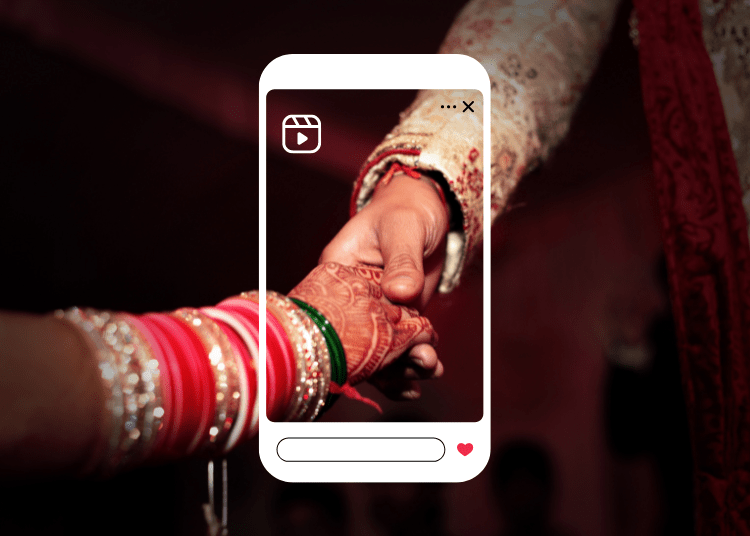Everything has a positive and negative aspect. Be it a small battery, a new piece of technology or a product. Similarly, even social media has its own advantages and disadvantage for its users. To note, social media, these days is extensively used by brands to not only market their product but also as a platform to interact with customers. Even though this allows brands to capture new markets and venture out to new avenues, it also makes them more accountable to the public at large.
This accountability and responsibility that a brand has to the consumers which get highly emphasized by social media also brings along more controversies and questions on the internet. Don’t believe us? Take a look –
1) Surf Excel’s friendship act backfired
HUL was a genuine sweetheart in trying to bring secularism in its ad campaign for the laundry detergent. The advertisement came out in the festive season of Holi which saw a Hindu girl helping her Muslim friend.
She comes out in a white salwar, cycling in the village to grab the attention of other kids who splashed her with colour. On the other hand, we see the Muslim boy reach the mosque without any trouble. In the end, the tagline read “baad me rang padega (will colour you later!)”. However, social media called this ad for promoting ‘love jihad’ or supporting Muslim culture over Hinduism.
2) Red Label’s eventful idea
The ad tried to target the concept of today’s youth abandoning their parents and finding ways to get rid of them. However, it chose the wrong moment of highlighting it. HUL showed the Kumbh Mela as a place where a son looks to let go of his father but then decided against it, opting to have a cup of tea with him. It was perceived as an ad that questions one of the biggest religious festivals and its authenticity. #BoycottHindustanUnilever also started trending on Twitter.
You deleted this.. But we won’t forget or forgive… Time to say No to Unilever products and yes to Indian brands… My fav is Patanjali pic.twitter.com/NYQSy55za0
— नंदिता ठाकुर (@nanditathhakur) March 7, 2019
3) Zomato in trouble
Zomato was also called double-faced when it came to its inclination towards religion. When a customer asked Zomato to change the delivery person due to his religion and also asked for a refund after the delivery was made, Zomato reverted back with a statement ‘Food doesn’t have a religion. It is a religion’. It has also been questioned on the delivery of non-halal food made by restaurants.
पीछे कुछ दिन पहले एक मुस्लिम की हलाल मीट नहीं होने की शिकायत को तो गम्भीरता से लिया गया,
पर हिन्दू की धार्मिक कंसीडरेशन की शिकायत को ना सिर्फ नकार दिया गया
क्यों?“”हमारी आपत्तियों में वह दम क्यों नहीं होता जो एक मुस्लिम की आपत्ति में होता है?””@ZomatoIN pic.twitter.com/8SVZ7fLYms
— roomi???????? (@RomaSherdy15) August 1, 2019
4) Gillette’s efforts gone wrong
After #MeToo movement took off and many came out in support of it, Gillette also decided to launch a campaign in support. However, it backfired and was questioned on its actual stand. Hashtags on ‘Toxic Masculinity’ and comparisons to ‘Toxic Waste’ were also made.
I have a problem when brands shove shit in my face like Gillette or whatever company it was that was all like toxic masculinity is a serious issue blah blah blah
— ColdManJones (@Cpt_C0ld) December 8, 2019
5) PharmEasy’s traditional touch
PharmEasy chose to tap into Indian Mythology for its new campaign. It showed the scene from Ramayana, where Lord Laxman was shot with an arrow and the sage asks Lord Ram to get the required herbal medicine from the Himalayas.
Yeh kya ho raha hai ?????????In logon sirf Hindu aur Hindu Bhagwan hi milte hai mazaak udaane ke liye?
Will they dare to mock any other faith?
Watch this outrageous ad by @pharmeasyapp & if ur blood boils as much as mine did then uninstall the app & trend #BoycottPharmEasy pic.twitter.com/WlDL9Ghfpo
— Besura Taansane (@BesuraTaansane) November 22, 2019
However, instead of the usual storyline, it shows Lord Ram questioning the distance to the Himalayas and then watching how PharmEasy’s employees come deliver the medicines in a scooter. Again, it was trending for hurting sentiments of Hindus and playing around with a sacred story.
Most of these controversies took off because of the vast number of people on social media. Everything cannot please everyone and everyone cannot agree with everything. Brands have now become more careful especially when it comes to religious sentiments but then again, doesn’t everyone have a freedom to speech?
















